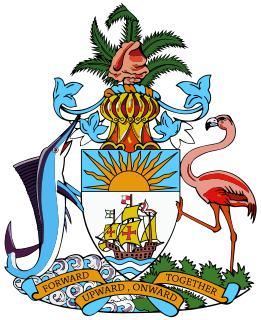
The Statute of Westminster 1931 is an Act of the Parliament of the United Kingdom and modified versions of it are now domestic law within Australia and Canada; it has been repealed in New Zealand and implicitly in former Dominions that are no longer Commonwealth realms. Passed on 11 December 1931, the act, either immediately or upon ratification, effectively both established the legislative independence of the self-governing Dominions of the British Empire from the United Kingdom and bound them all to seek each other's approval for changes to monarchical titles and the common line of succession. It thus became a statutory embodiment of the principles of equality and common allegiance to the Crown set out in the Balfour Declaration of 1926. As the Statute removed nearly all of the British Parliament's authority to legislate for the Dominions, it had the effect of making the Dominions largely sovereign nations in their own right. It was a crucial step in the development of the Dominions as separate states.

The Bill of Rights, also known as the English Bill of Rights, is an Act of the Parliament of England that sets out certain basic civil rights and clarifies who would be next to inherit the Crown. It received the Royal Assent on 16 December 1689 and is a restatement in statutory form of the Declaration of Right presented by the Convention Parliament to William III and Mary II in February 1689, inviting them to become joint sovereigns of England. The Bill of Rights lays down limits on the powers of the monarch and sets out the rights of Parliament, including the requirement for regular parliaments, free elections, and freedom of speech in Parliament. It sets out certain rights of individuals including the prohibition of cruel and unusual punishment and reestablished the right of Protestants to have arms for their defence within the rule of law. Furthermore, the Bill of Rights described and condemned several misdeeds of James II of England.
An Order in Council is a type of legislation in many countries, especially the Commonwealth realms. In the United Kingdom this legislation is formally made in the name of the Queen by and with the advice and consent of the Privy Council (Queen-in-Council), but in other countries the terminology may vary. The term should not be confused with Order of Council, which is made in the name of the Council without royal assent.

A Commonwealth realm is a sovereign state in which Queen Elizabeth II is the reigning constitutional monarch and head of state. Each realm is independent from the other realms. As of 2019, there are 16 Commonwealth realms: Antigua and Barbuda, Australia, The Bahamas, Barbados, Belize, Canada, Grenada, Jamaica, New Zealand, Papua New Guinea, Saint Kitts and Nevis, Saint Lucia, Saint Vincent and the Grenadines, Solomon Islands, Tuvalu, and the United Kingdom. All 16 Commonwealth realms are members of the Commonwealth of Nations, an intergovernmental organisation of 53 member states. Elizabeth II is Head of the Commonwealth.
The Queen-in-Parliament, sometimes referred to as the Crown-in-Parliament or, more fully, in the United Kingdom, as the King or Queen in Parliament under God, is a technical term of constitutional law in the Commonwealth realms that refers to the Crown in its legislative role, acting with the advice and consent of the parliament. Bills passed by the houses are sent to the sovereign, or governor-general, lieutenant-governor, or governor as her representative, for Royal Assent, which, once granted, makes the bill into law; these primary acts of legislation are known as acts of parliament. An act may also provide for secondary legislation, which can be made by the Crown, subject to the simple approval, or the lack of disapproval, of parliament.
In the Commonwealth realms, a Royal Style and Titles Act or a Royal Titles Act is an Act of Parliament passed in the relevant jurisdiction which defines the sovereign's formal title in that jurisdiction. The most significant of these acts is the Royal and Parliamentary Titles Act 1927 of the United Kingdom, which recognised the creation of the Irish Free State, a development that necessitated a change in King George V's title.

The monarchy of New Zealand is the constitutional system of government in which a hereditary monarch is the sovereign and head of state of New Zealand. The current monarch, Queen Elizabeth II, ascended the throne on the death of her father, King George VI, on 6 February 1952.

Succession to the British throne is determined by descent, sex, legitimacy, and religion. Under common law, the Crown is inherited by a sovereign's children or by a childless sovereign's nearest collateral line. The Bill of Rights 1689 and the Act of Settlement 1701 restrict succession to the throne to the legitimate Protestant descendants of Sophia of Hanover who are in "communion with the Church of England". Spouses of Roman Catholics were disqualified from 1689 until the law was amended in 2015. Protestant descendants of those excluded for being Roman Catholics are eligible.
The precise style of British sovereigns has varied over the years. The present style is officially proclaimed in two languages:

His Majesty's Declaration of Abdication Act 1936 was the Act of the Parliament of the United Kingdom that recognised and ratified the abdication of King Edward VIII and passed succession to his brother King George VI. The act also excluded any possible future descendants of Edward from the line of succession. Edward VIII abdicated in order to marry his lover, Wallis Simpson, after facing opposition from the governments of the United Kingdom and the Dominions.

The Defence of the Realm Act (DORA) was passed in the United Kingdom on 8 August 1914, four days after it entered World War I and was added to as the war progressed. It gave the government wide-ranging powers during the war period, such as the power to requisition buildings or land needed for the war effort, or to make regulations creating criminal offences.

The Emergency Powers (Defence) Act 1939 was emergency legislation passed just prior to the outbreak of World War II by the Parliament of the United Kingdom to enable the British Government to take up emergency powers to prosecute the war effectively. It contained clauses giving the government wide powers to create Defence Regulations which regulated almost every aspect of everyday life in the country. Two offences under the regulations were punishable with death.

The monarchy of Australia concerns the form of government in which a hereditary king or queen serves as the nation's sovereign and head of state. Australia is governed under a form of constitutional monarchy, largely modelled on the Westminster system of parliamentary government, while incorporating features unique to the Constitution of Australia. The present monarch is Elizabeth II, styled Queen of Australia, who has reigned since 6 February 1952. She is represented in Australia as a whole by the Governor-General, in accordance with the Australian Constitution and letters patent from the Queen, and in each of the Australian states, according to the state constitutions, by a governor, assisted by a lieutenant-governor. The monarch appoints the Governor-General and the governors, on the advice respectively of the Commonwealth government and each state government. These are now almost the only constitutional functions of the monarch with regard to Australia.

The term "the unity of the Realm" refers to the relationship between Denmark proper, the Faroe Islands and Greenland—three countries constituting the Kingdom of Denmark.

The Kingdom of Iceland was a constitutional monarchy, a sovereign and independent country that was established by the Act of Union with Denmark signed on 1 December 1918. It lasted until 17 June 1944 when a national referendum established the Republic of Iceland in its place.

The Monarchy of the Bahamas is a system of government in which a hereditary monarch is the sovereign of the Commonwealth of The Bahamas. The current monarch and head of state is Queen Elizabeth II, who has reigned since the country became independent on 10 July 1973. The Bahamas share the Sovereign with the other Commonwealth realms. The Queen does not personally reside in the islands, and most of her constitutional roles are therefore delegated to her representative in the country, the Governor-General of the Bahamas. Royal succession is governed by the English Act of Settlement of 1701, as amended by the Succession to the Crown Act 2013 of the Parliament of the United Kingdom, with the latter statute reflecting the Perth Agreement, to which the Bahamas government acceded. The two acts are part of constitutional law.
A Dominion was the "title" given to the semi-independent polities under the British Crown, constituting the British Empire, beginning with Canadian Confederation in 1867. "Dominion status" was a constitutional term of art used to signify an independent Commonwealth realm; they included Canada, Australia, New Zealand, Newfoundland, South Africa, and the Irish Free State, and then from the late 1940s also India, Pakistan, and Ceylon. The Balfour Declaration of 1926 recognised the Dominions as "autonomous Communities within the British Empire", and the 1931 Statute of Westminster confirmed their full legislative independence.
The Perth Agreement is an agreement made by the prime ministers of the sixteen countries of the Commonwealth of Nations which retain the Westminster monarchical form of government. The Perth Agreement concerns amendments to the royal succession to the British Monarchy, whose institutions and legal framework are (largely) shared equally between Britain and the other Commonwealth realms. The changes, in summary, comprised replacing male-preference primogeniture ― under which male descendants take precedence over females in the line of succession ― with absolute primogeniture ; ending the disqualification of those married to Roman Catholics; and limiting the number of individuals in line to the throne requiring permission from the Sovereign to marry. However, the ban on Catholics and other non-Protestants becoming Monarch and the requirement for the Sovereign to be in communion with the Church of England remained.

The first South African military medal was a campaign medal, the South Africa Medal, instituted in 1854 by Queen Victoria, the Monarch of the United Kingdom of Great Britain and Ireland, for award to officers and men of the Royal Navy and British Army who served on the Eastern Frontier of the Cape Colony between 1834 and 1853 during the Xhosa Wars.













